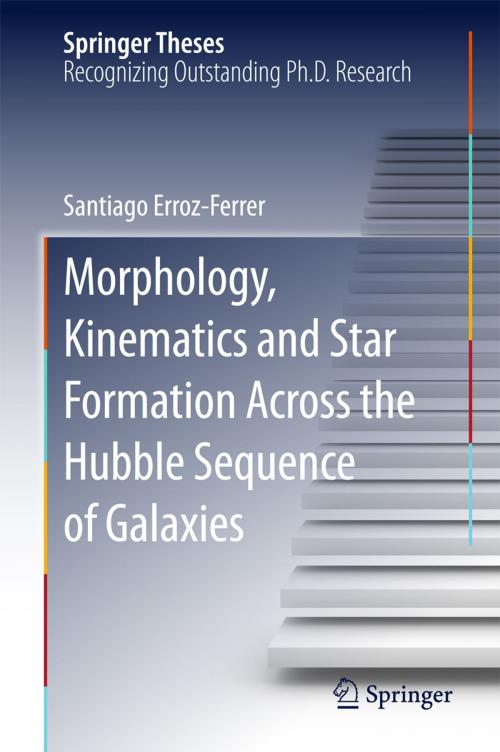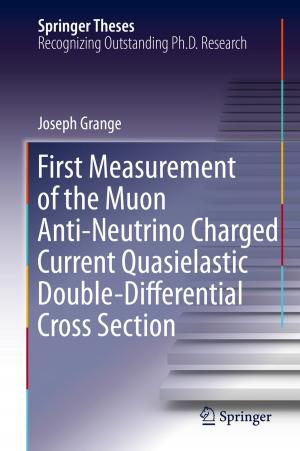Morphology, Kinematics and Star Formation Across the Hubble Sequence of Galaxies
Nonfiction, Science & Nature, Science, Physics, Astronomy, Astrophysics & Space Science| Author: | Santiago Erroz-Ferrer | ISBN: | 9783319263984 |
| Publisher: | Springer International Publishing | Publication: | November 21, 2015 |
| Imprint: | Springer | Language: | English |
| Author: | Santiago Erroz-Ferrer |
| ISBN: | 9783319263984 |
| Publisher: | Springer International Publishing |
| Publication: | November 21, 2015 |
| Imprint: | Springer |
| Language: | English |
This thesis discusses the evolution of galaxies through the study of the morphology, kinematics, and star formation properties of a sample of nearby galaxies. The main body of the thesis describes the kinematic observations with the GHaFAS Fabry-Perot instrument on the William Herschel Telescope of a sample of 29 spiral galaxies. The work is closely related to the Spitzer Survey of Stellar Structure in Galaxies, and uses the mid-infrared data of that survey to determine key parameters of the galaxies studied. From these data, important results are obtained on streaming and other non-circular motions in galaxies, on the distribution and rates of star formation, and on how correlations of these parameters and of the rotation curve shape with basic galaxy parameters yield clues on the evolutionary processes taking place in disk galaxies.
This thesis discusses the evolution of galaxies through the study of the morphology, kinematics, and star formation properties of a sample of nearby galaxies. The main body of the thesis describes the kinematic observations with the GHaFAS Fabry-Perot instrument on the William Herschel Telescope of a sample of 29 spiral galaxies. The work is closely related to the Spitzer Survey of Stellar Structure in Galaxies, and uses the mid-infrared data of that survey to determine key parameters of the galaxies studied. From these data, important results are obtained on streaming and other non-circular motions in galaxies, on the distribution and rates of star formation, and on how correlations of these parameters and of the rotation curve shape with basic galaxy parameters yield clues on the evolutionary processes taking place in disk galaxies.















